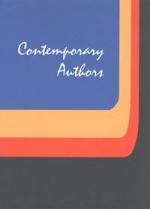|
This section contains 9,767 words (approx. 33 pages at 300 words per page) |

|
SOURCE: McLeod, Les. “Irony and Affirmation in the Poetry of Earle Birney.” Essays on Canadian Writing, no. 21 (spring 1981): 130-57.
In the following essay, McLeod traces Birney's literary treatment of the conflicting themes of irony and affirmation, starting with an examination of the poet's doctoral dissertation, “Chaucer's Irony.”
I
It is the problem of affirmation within the ironic mode which has concerned Earle Birney the poet, as the problem of humanity in an apocalyptic age has concerned Birney the man. Both problems, literary and social, were approached in Birney's doctoral dissertation, “Chaucer's Irony.” Completed in 1936, the dissertation demonstrated a profound understanding of irony, and of its relationship to a writer's society. Birney argued that Chaucer's irony reflected his “ambiguous class position,” between a “responsive interest in the new vigorous world of the bourgeois, and his economic and social need to reconcile that interest with the duties of a courtier...
|
This section contains 9,767 words (approx. 33 pages at 300 words per page) |

|


